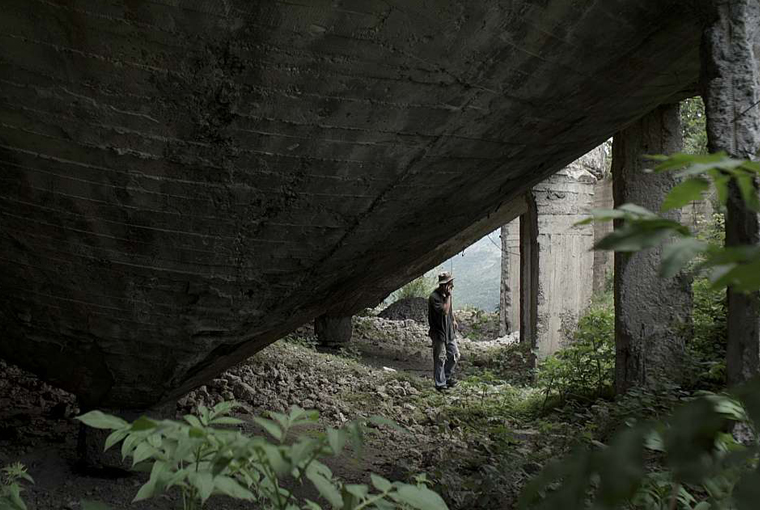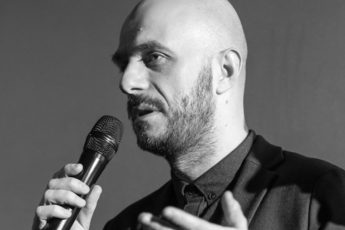The Apostles of Chiatura
Rati Oneli’s City of the Sun (Mzis qalaqi, 2017)
Vol. 72 (February 2017) by Moritz Pfeifer
The documentary City of the Sun is an impressionistic portrait of the everyday life in Chiatura, a mining town on the banks of the Qvirila River in Western Georgia. The fall of Communism had a dramatic impact on the town. The shut-down of the mines in 1991 was followed by social and economic decline with Chiatura losing about a third of its population. Several privatizations have since restarted the extraction process but were unable to fully restore mining activity. Today, depopulation and industrial ruins make most of the town look like an ideal setting for a post-apocalyptic computer game. Gigantic, windowless concrete blocks, dead train tracks, abandoned factories and rusty cable cars, described by one British journalist for the Daily Mail as ‘metal coffins’, have turned Chiatura into an insider destination for urban exploration.
Director Rati Oneli tries hard to focus on the living. His basic motivation can be read from a final quote by early modern luminary Tommaso Campanella whose most famous book also inspired the title of the film: “They are rich because they want nothing, poor because they possess nothing; and consequently they are not slaves to circumstances, but circumstances serve them.” For Oneli, it seems, a cocktail of self-determination and abnegation causes the citizens of Chiatura to see the sun where others would see darkness.
To hammer this point home, Oneli focuses on social gatherings, creative activities, and the youth. Miners celebrate their fate in lengthy supras, occupying former Soviet institutions to orchestrate feasts with friends and families. Two female adolescents excessively train long-distance running; though, apparently, not to run away. The miners have revived the town’s art scene and engage in theater productions, dances and traditional panduri music performances. When one miner starts rehearsing his lines after having carefully placed his safety lamp in an effort to create a spotlight miles underground, the implication of concerted fun is almost believable.
However, all good intentions aside, the director is unable to resist grandiose shots of urban decay. Impressive images provided by a drone hovering through the ruinous valley could depress even the most high-spirited urban explorer. Indeed, these super-wide-shots make Chiatura’s inhabitants look forlorn amidst the crushing towers of their industrial past. These images also certainly contradict with Campanella’s vision of mastering one’s circumstances, which in the case of Chiatura, almost certainly means being poor, probably unemployed, and possibly trying to deal with drinking too much alcohol. But Oneli tries to infuse a deeper meaning to this life by throwing spiritual music over manufactured shots of transient beauty – Tarkovsky for the working class. Whether Oneli’s characters themselves have such a romanticized view of their post-industrial condition seems questionable to say the least.
Surely, too many recent films about economic transition unilaterally focus on what the only obviously drunk character in the film describes as “the grey century”. But replacing post-industrial depression with spiritual asceticism can hardly be considered a solution: neither for the post-industrial subjects nor for filmmakers confronting them. Without the imposing spiritualism, Oneli’s character portraits fail to convey any sense of liberty. “I don’t need wealth to feel rich” can hardly be considered a wise answer to the question of how to confront urban decay and social detriment, especially when the little wealth that is left is made invisible as it disappears in the pockets of Russian and Western European enterprises. Framing working communities as happy-with-nothings eerily resembles the rationale of contemporary apostles shouting that there is no alternative.




Leave a Comment